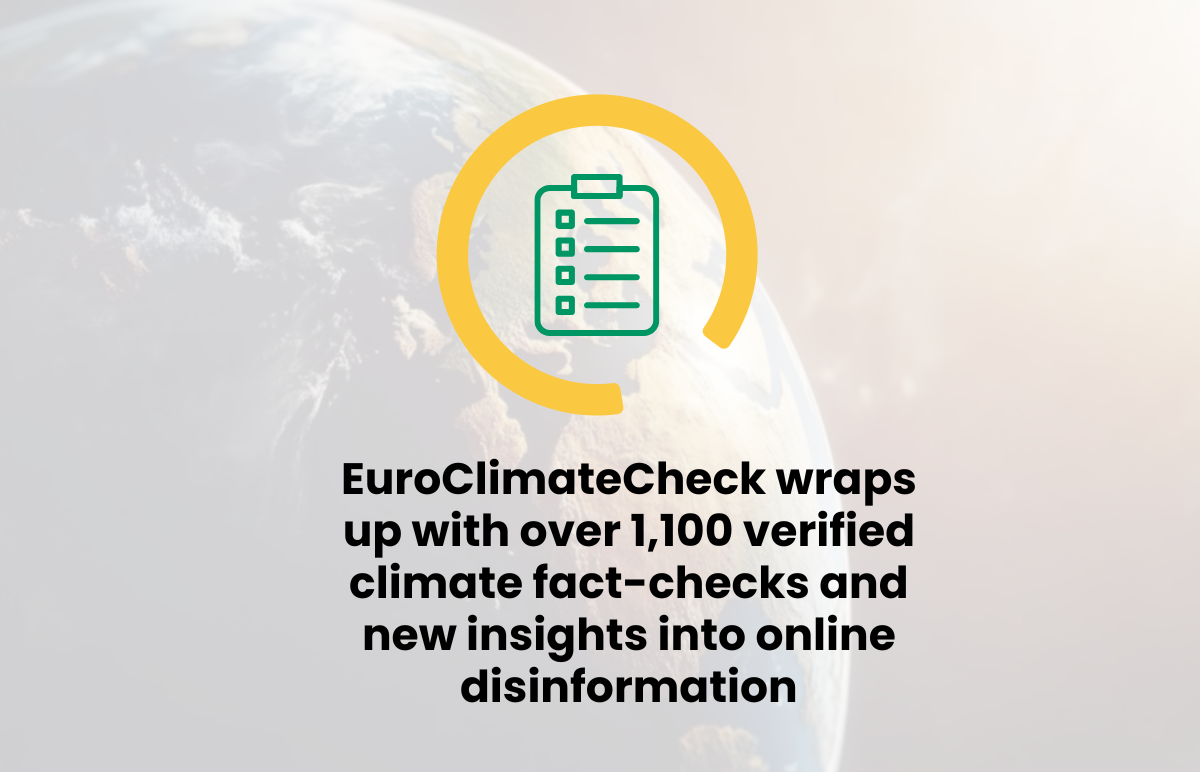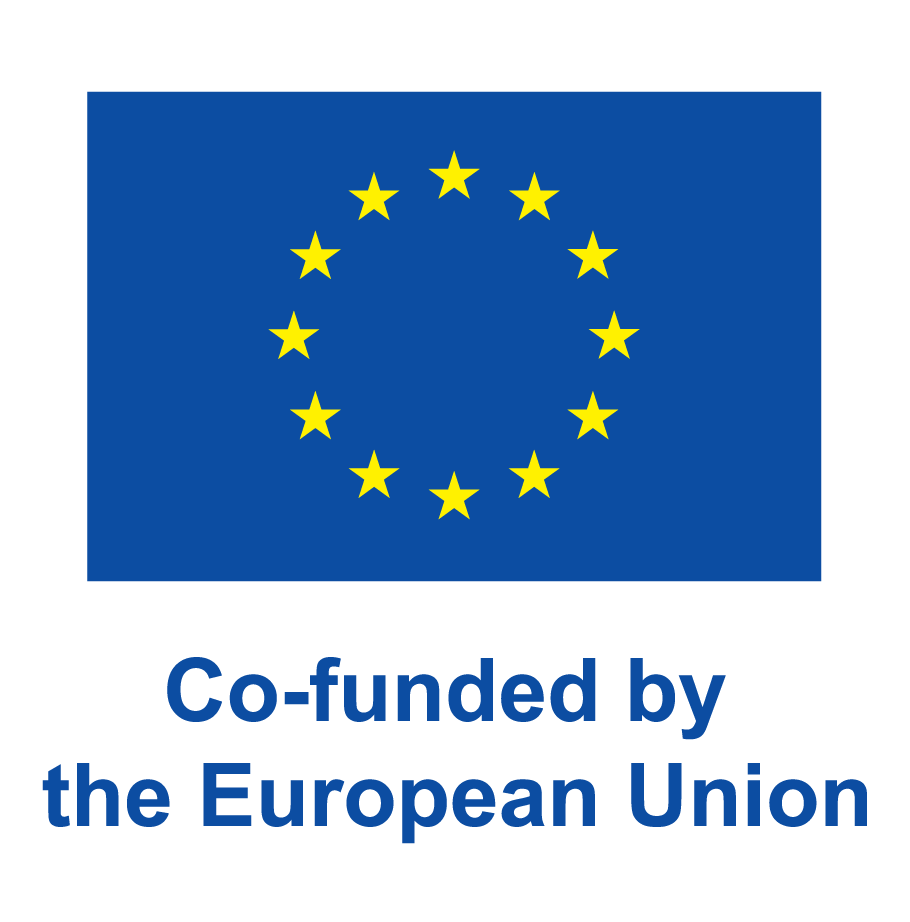
As the world turns its attention to COP30, false and misleading claims about climate change are once again flooding social media. From revived conspiracies about HAARP “controlling the weather”, which fact-checkers from Poland debunked, to unsupported claims from Donald Trump’s recent UN Speech that Greek analysts verified to misleading economic claims such as “electricity prices have dropped by 50%” that were checked by fact-checkers in Spain, the online information space remains turbulent.
According to recent research, 87% of the global population supports climate change policies, and 62–76% of Europeans report being worried about climate change. Yet, climate disinformation continues to thrive, often spreading faster than verified information.
“Misinformation about the climate crisis doesn’t just confuse people – it erodes trust in science and weakens collective action,” the EuroClimateCheck Project Manager Jakub Śliż says. “Deliberate disinformation is designed to deceive audiences for political, financial or ideological gain.”
EuroClimateCheck is yet another piece of evidence to support the notion that misinformation and disinformation, along with the impacts of the climate and nature crises, pose the most significant short- and long-term risks to societies worldwide.
Eighteen months of collaboration – and results to build on
After 18 months of work, EuroClimateCheck concludes, having created the largest cross-European database of climate-related fact-checks. The project brought together 30 organisations that collectively published 1,175 verified articles and contributed more than 80,000 data points.
The initiative produced five key resources that will continue to serve the fact-checking community.
- Needs assessment report – completed with input from 30 organisations, providing a baseline for European climate-fact-checking capacity.
- Back-office infrastructure – including an ingestion workflow, structured schema, and editorial interface.
- Public website – a searchable platform open to journalists, researchers, and policymakers.
- Narrative analysis module – introducing a new way to track and compare sub-narratives around climate change.
- Expert database – a verified network of 206 climate experts, now maintained as an invite-only resource for EFCSN members.
- Two reports have already been published using project data, with a third forthcoming, highlighting practical applications of these findings and strengthening the project’s research value.
Key insights from 1,175 fact-checks
Fact-checking climate-related content is uniquely demanding. It often requires access to scientific expertise and time-intensive verification that goes far beyond traditional political claims. Many participating organisations reported encountering the same falsehoods repeatedly across countries and platforms—a clear sign that climate disinformation travels quickly and ignores borders.
To help address these challenges, EuroClimateCheck created a shared, standardised database that allowed smaller or less resourced teams to collaborate with peers, share findings, and avoid duplicating work.
Across the project’s 1,175 verified fact-checks, several themes appeared most frequently:
- Extreme weather events (200 articles) – Fact-checkers repeatedly debunked claims denying links between climate change and phenomena like floods, wildfires, or heatwaves. Many of these narratives attempted to downplay scientific consensus or falsely attribute disasters to human-made technologies.
- Conspiracy theories (160 articles) – Persistent theories such as “HAARP controls the weather” or “chemtrails” resurfaced in multiple languages. These narratives often evolve, merging with other forms of online manipulation or political propaganda.
- Renewables (112 articles) – Misleading claims questioned the efficiency, cost, or environmental benefits of solar and wind energy. Some narratives falsely portrayed renewable projects as responsible for rising electricity prices or ecosystem damage.
- Transport (92 articles) – Disinformation targeted climate-friendly mobility policies, including electric vehicles and low-emission zones, often exaggerating their cost or impact on citizens’ freedom of movement.
Each of these topics also branched into smaller, highly specific sub-narratives. This shows that climate disinformation rarely takes the form of a single viral post. Instead, it spreads through many minor, repeating storylines that collectively shape public perception and erode trust in climate science.
Assessing harm: fact-checkers say yes.
EuroClimateCheck also asked participating fact-checkers to annotate whether the verified content was harmful. The results were unambiguous – most agreed that the claims carried real-world risks.
In evaluating harm, the project encouraged fact-checkers to consider:
- The specific mechanisms by which harm occurs (e.g. “reduced support for effective climate policy due to misleading narratives”).
- Who is affected and how, such as particular communities or vulnerable groups.
- Repetition of specific claims which amplifies cumulative effects.
- The origin and channel of the disinformation – from social media users to politicians or institutions.
The findings make one thing clear: even when climate misinformation and disinformation do not cause immediate, tangible harm, they remain a powerful tool in the hands of the anti-science movement, eroding trust in experts, institutions, and collective climate action.
What comes next
Although EuroClimateCheck’s data-collection phase is ending, the website and database remain available. Researchers can still apply for access to use the data in academic or journalistic work, helping to continue mapping the evolving landscape of climate mis- and disinformation.
“This project has shown what can be achieved when fact-checkers, scientists, and technologists work together,” the EuroClimateCheck Project Manager Jakub Śliż said. “Our shared database has become an essential reference point – and we’re just getting started.”
